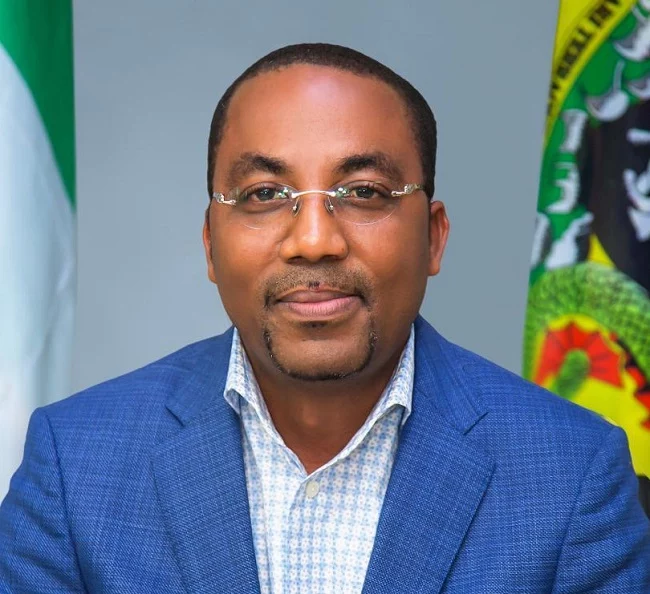The Nigerian Ports Authority (NPA), said the $1.5billion Lekki deep seaport is not a threat to the already existing seaports in Lagos.
Presenting a paper titled: “Lekki Deep Seaport:l, Gains, Challenges and Potential Threat To Lagos Port,” at a retreat organised by the League of Maritime Editors in Lagos, the managing director of NPA, Mohammed Bello-Koko, stated that the neglect of hinterland connectivity at the Lekki port is an albatross for the optimisation of the benefits inherent in the project.
Bello-Koko, who explained that the Apapa and Tin-Can Island ports will function as feeder ports to cargoes that come from Lekki port, disclosed further that they would function as regional port to serve destination cargo of their catchment area.
He said, “There seems to be morbid fear by stakeholders that the emergence of Lekki Deep Sea Ports may signal the death or possibly turn the existing ports in Lagos area to tourist site, this is simply a fallacy. The Deep Sea Port operates by principle of Hub and Spoke and as a derivative to this, the existing port will simply function as a feeder ports. When big vessels call at Lekki, other ports would be fed with their own market share. In other words, the existing port would function as regional port to serve destination cargo of their catchment area,” the NPA boss added.
Bello-Koko, however, stated that operationalisation of Lekki Port is a game changer not only for Nigerian Ports Authority’s operations but Nigerian economy at large.
“There is no doubt that operationalisation of Lekki Port would be a game changer not only for Nigerian Ports Authority’s operations but Nigerian economy at large. It is therefore important that necessary logistics infrastructure be put in place to optimise the benefits and guarantee positive impacts.
“It may be necessary for Nigerian Ports Authority management to create requisite synergy with relevant bodies towards addressing observable operational constraints. It would equally be necessary to engage in advocacy to sensitise various stakeholders in their respective roles in actualising the provision of these critical infrastructures.
“It may be necessary for the NPA management to create requisite synergy with relevant bodies towards addressing observable operational constraints. It would equally be necessary to engage in advocacy to sensitise various stakeholders in their respective roles in actualising the provision of these critical infrastructures.”
Also speaking, the Seaports Terminal Operators Association of Nigeria (STOAN), reiterated that the operationalisation of Lekki deep seaport won’t affect the viability of Apapa and Tin-Can Island ports.
STOAN chairman, Princess Vicky Hasstrup, who was represented by the association’s spokesman, Dr Bolaji Akinola, said all ports in the country have their own niche.
According to Hasstrup, by 2050, Nigeria is projected to be third largest economy in the world, hence there is room for everyone.
“There is transit cargoes for Lekki deep seaport, Ondo seaport is for exportation of bitumen, Badagry is coming to stop cargo diversion to Benin Republic, Ibom is to feed the North-Eastern part of the country. The ports are not in competition with each other but to complement themselves,”she said.
She, however, disclosed that intermodalism should have been included in the blue print of Lekki deep seaport, saying the Apapa traffic on the Apapa corridor would be transfered to Lekki when it becomes operational.
“Abinitio, rail and badging should have been implemented into the blueprint of the port. If Lekki port should begin operation with cargo evacuation being road alone, lives will be miserable for residents of the community. The gridlock in Apapa and Tin-Can Island will be transferred to Lekki port and it will be worse.
“By the time Lekki port commences operations and about a thousand trucks besiege Lekki roads, traffic along that corridor will be a disaster.Unless cargoes are evacuated through other means like barges, the commencement of Lekki port which will invite large numbers of trucks to that corridor will lead to another traffic gridlock along that axis.”
Present at the one day retreat include, Comptroller General of Customs, Col. Hameed Ali (rtd) represented by Customs Zonal Coordinator for Zone A, ACG Adeyanju Aremu; director-general of the Nigerian Maritime Administration and Safety Agency (NIMASA), Dr. Bashir Jamoh represented by the agencys’ director of special duties, Mr. Isichei Osamgbi, and acting controller of Federal Operations Unit, Zone A, Hussein Ejibunu.





